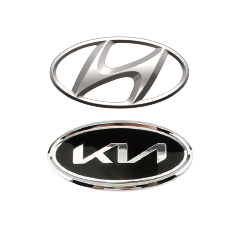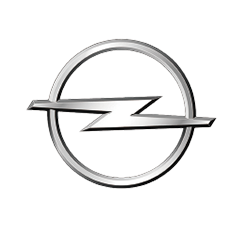"The basic freight forwarding terms are EXW, FCA, FAS, FOB, CFR, CIF, CPT, CIP, DAF, DES, DEQ, DDU, DDP.
?
These 13 trade terms, from left to right, have increasing obligations for the seller and vice versa for the buyer. That is to say, among the above trade terms, the seller has the least responsibility under EXW, while the seller has the most responsibility under DDP.
?
EXW Factory Delivery
?
means that delivery is completed when the seller places the goods at the buyer's disposal at his premises or at another designated place (such as a workshop, factory or warehouse), without the seller clearing the goods for export or loading them onto any means of transport.
The seller does not clear the goods for export or load them onto any means of transport.
The term is the seller to assume the least responsibility for the term.
FCA
FCA Goods to Carrier
FCA
It means that as long as the seller hands over the goods to the carrier designated by the buyer at the designated place and goes through the export clearance formalities, the delivery is completed.
?
It should be noted that the choice of place of delivery has implications for the obligation to load and unload the goods at that location. The term can be used for all modes of transport, including multimodal transport.
FAS
FAS Free Alongside Ship
FAS
means that the seller completes delivery of the goods by handing them over the side of the ship at the named port of shipment. The buyer must assume all risk of loss of or damage to the goods from that point on.
FOB
FOB term
FOB
means name of goods + quantity of goods + unit price + FOB + port of shipment. The transfer of risk is at the time of crossing the ship's rail. As the goods do not cross the ship's rail the liability should be borne by the seller's company.
The seller's company should bear the responsibility.
If during the lifting process the boom breaks and the cement does not fall into the sea but onto the ship's deck, then the risk is transferred to the buyer and the liability should be borne by the buyer's company.
?
CFR cost plus freight
?
This means that the goods are delivered when they cross the ship's rail at the port of shipment, and the seller must pay the freight and expenses required to bring the goods to the named port of destination.
The seller must pay the freight and charges for transporting the goods to the named port of destination.
However, the risk of loss of or damage to the goods after delivery, as well as any additional costs due to events, passes from the seller to the buyer.
?
The term applies only to sea or inland waterway transport. If the parties do not intend to deliver over the ship's rail, the CPT term shall be used.
?
CIF Cost, Insurance and Freight
CIF
means that the seller completes delivery when the goods cross the ship's rail at the port of shipment. This term is only applicable to sea and inland waterway transport.
CIF
If the parties do not intend to deliver over the side of the vessel, the term CIP should be used.
CPT
CPT Carriage Paid To (named place of destination)
?
means that the seller delivers the goods to the carrier nominated by the seller (Carrier Paid To Carrier), but the seller must also pay the freight charges for transporting the goods to the destination. That is, the buyer bears all risks and other costs after delivery.
CIP
CIP freight and insurance
CIP
means that the seller delivers the goods to the international freight forwarder appointed by the seller, but the seller must also pay the freight charges for transporting the goods to the destination, i.e., the buyer bears all the risks and additional costs after the seller has delivered the goods.
This means that the buyer bears all the risks and additional costs after the seller has delivered the goods.
The term can be applied to all modes of transport, including multimodal transport.
DAF
DAF Delivered at Frontier
Delivered at Frontier (DAF)
It means that delivery is completed when the seller puts at the disposal of the buyer, at a named place and specific point of delivery at the border, before the customs border of the adjoining country, the goods that have not yet been unloaded from the means of transport that are still in the process of being delivered, and clears the goods for export, but not yet for import.
DES
DES Delivery on board the vessel at the port of destination
DES
It means that at the designated port of destination, the goods are placed at the disposal of the buyer on board the ship, but the seller completes the delivery when the goods are not cleared for import.
DES
This term can only be used when the goods are shipped on board the vessel at the port of destination by sea or inland waterway transport or multimodal transport.
?
DEQ (Delivered at Quay of Destination)
DEQ
It means that as long as the seller hands over the goods to the carrier designated by the buyer at the designated place and goes through the customs clearance procedures for export, the delivery is completed.
?
It should be noted that the choice of place of delivery has an impact on the obligation to load and unload the goods at that place. The term can be used for all modes of transport, including multimodal transport.
?
DDU Delivered Duty Unpaid
?
is a delivery where the seller places the goods at the buyer's disposal at the named place of destination without going through import formalities or unloading the goods from the conveyance in which they were delivered.?
?
The term applies to all modes of transport, but when the goods are delivered on board the ship or at the quay at the port of destination, the term DES or DEQ should be used.
?
DDP Delivered Duty Paid
?
It means that the seller will hand over to the buyer the goods that have not been unloaded on the delivery means of transport at the designated destination, after the import clearance formalities, so as to complete the delivery.
DDP
Because the seller assumes the greatest responsibility under the DDP term, this term should not be used if the seller cannot obtain an import licence, either directly or indirectly; if the parties wish the buyer to bear the risks and costs of importation, the DDU term should be used.
?
This term is applicable to all modes of transport, but when the goods are delivered on board a vessel or at a terminal in the port of destination, DES or DEQ terms should be used.
?"




